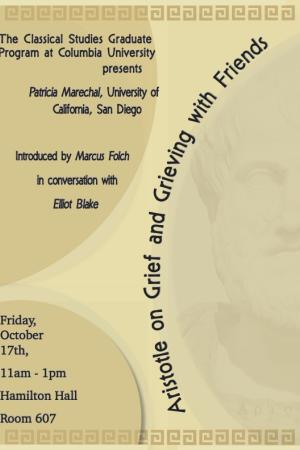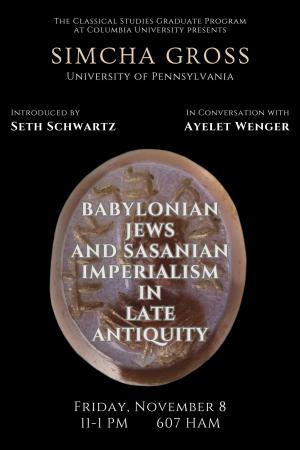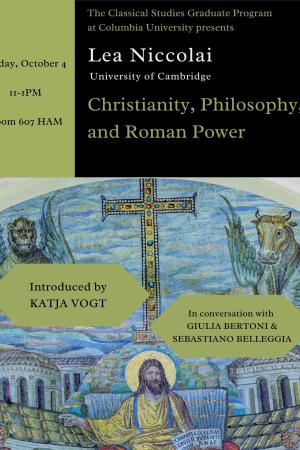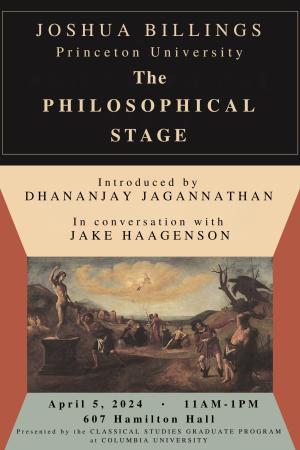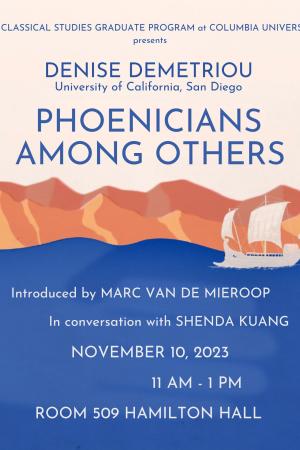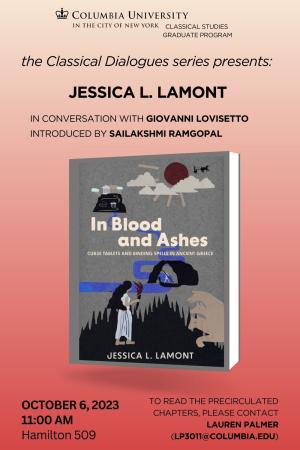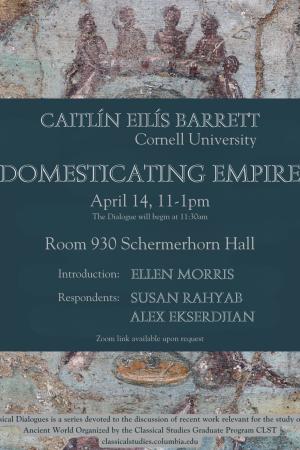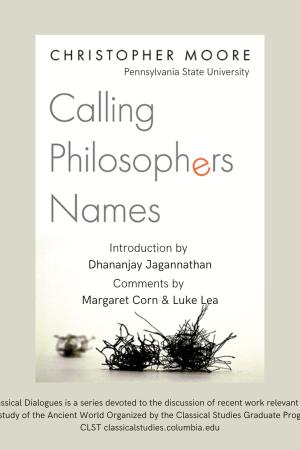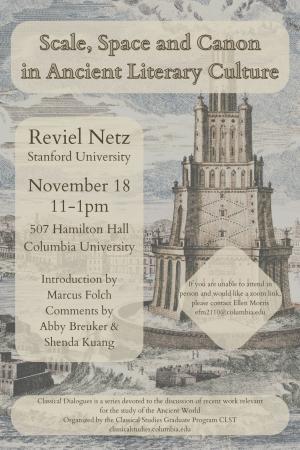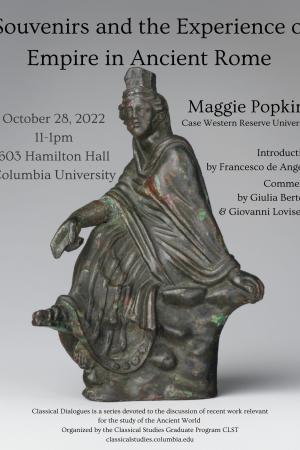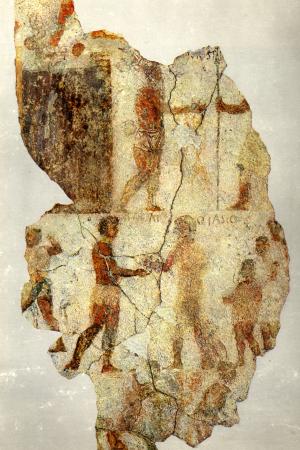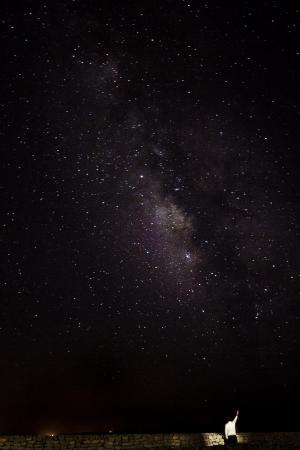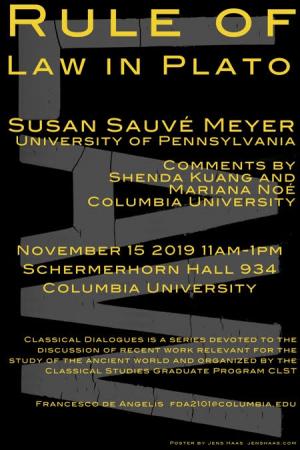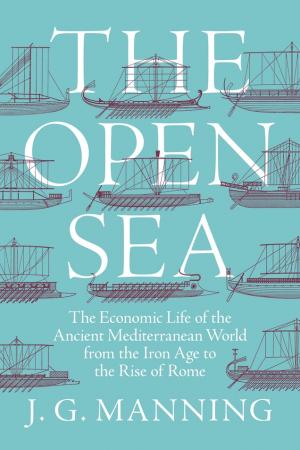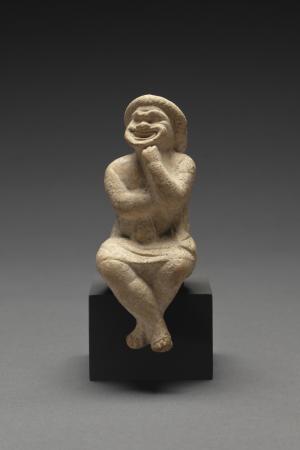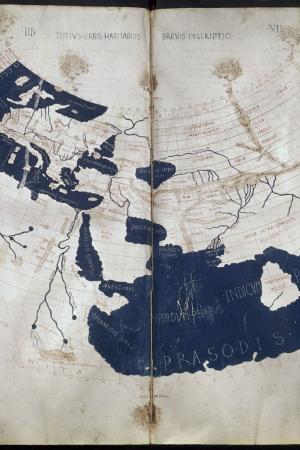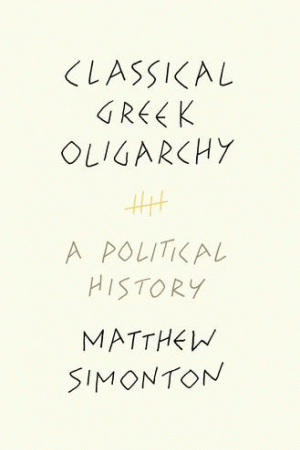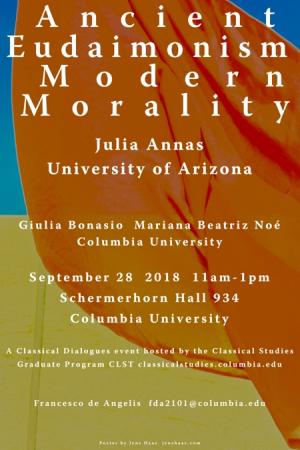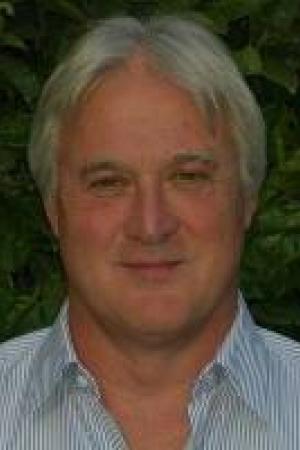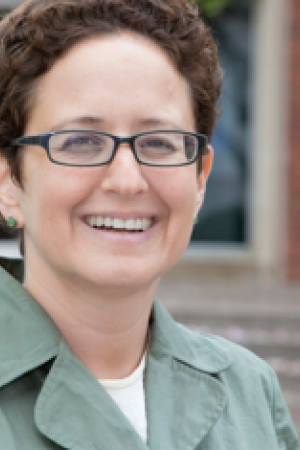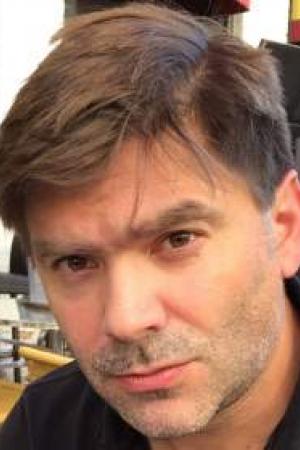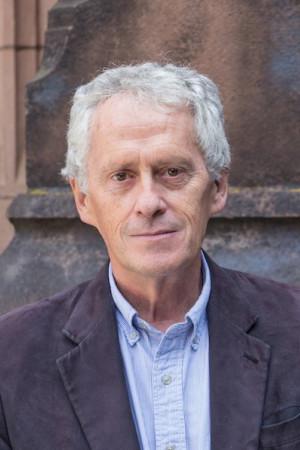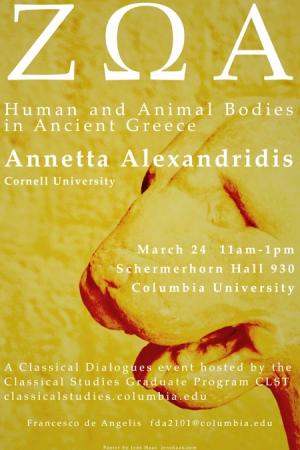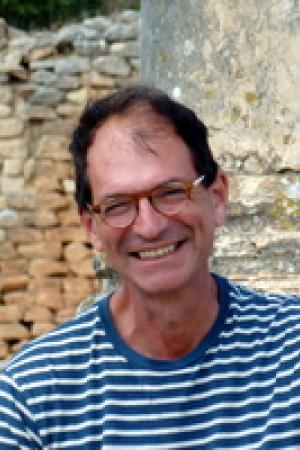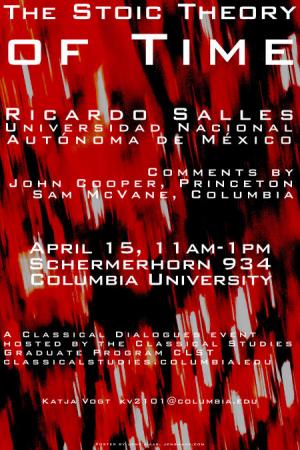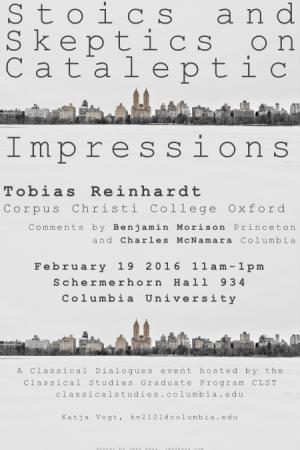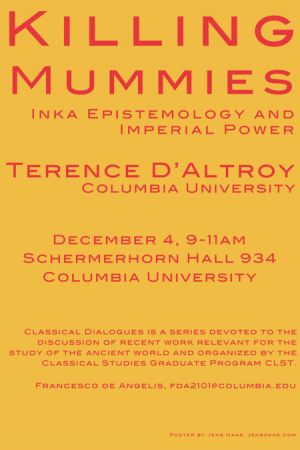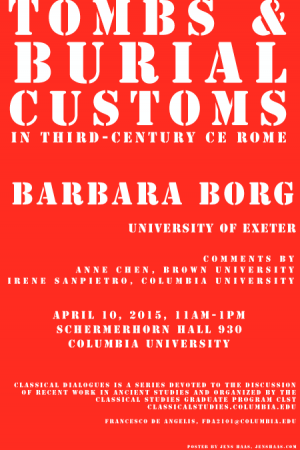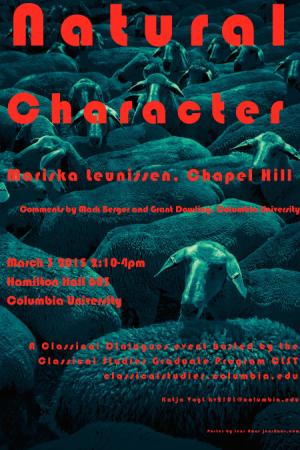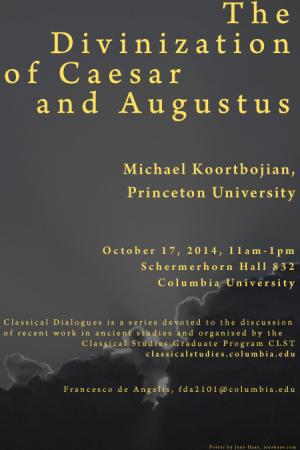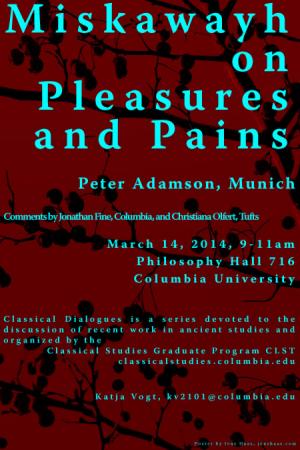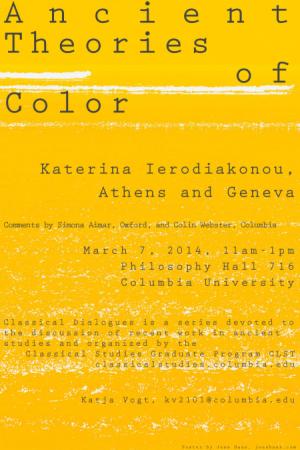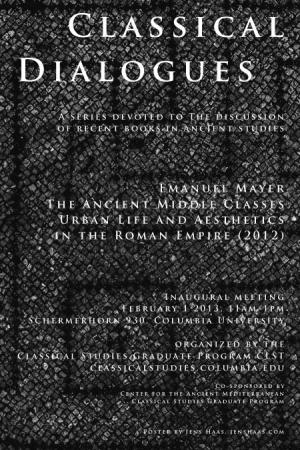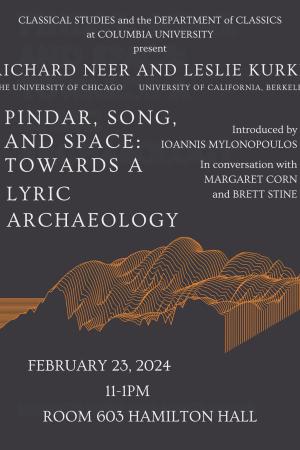 Pindar, Song, and Space: Towards a Lyric ArchaeologyRichard Neer and Leslie Kurke The University of Chicago and University of California, BerkeleyFebruary 23, 2024 - February 23, 2024
Pindar, Song, and Space: Towards a Lyric ArchaeologyRichard Neer and Leslie Kurke The University of Chicago and University of California, BerkeleyFebruary 23, 2024 - February 23, 2024
11:00am - 1:00pm -
Columbia University
As part of its Classical Dialogues series, the Classical Studies Graduate Program at Columbia University is pleased to welcome Richard Neer, Barbara E. and Richard J. Franke Distinguished Service Professor in Art History at The University of Chicago, and Leslie Kurke, Gladys Rehard Wood Chair, Professor of Ancient Greek & Roman Studies and Comparative Literature at the University of California, Berkeley. On February 23, from 11am-1pm, they will discuss their book Pindar, Song, and Space: Towards a Lyric Archaeology (Johns Hopkins UP, 2019), which "develops a new, integrated approach to classical Greece: a 'lyric archaeology' that combines literary and art-historical analysis with archaeological and epigraphic materials." Introduction by Ioannis Mylonopoulos (Columbia University) with commentary by Margaret Corn (Columbia University) and Brett Stine (Columbia University). Location: Room 603 Hamilton Hall.
A groundbreaking study of the interaction of poetry, performance, and the built envirnoment in ancient Greece and winner of the PROSE Award for Best Book in Classics by the Association of American Publishers. In this volume, Richard Neer and Leslie Kurke develop a new, integrated approach to classical Greece: a "lyric archaeology" that combines literary and art-historical analysis with archaeological and epigraphic materials. At the heart of the book is the great poet Pindar of Thebes, best known for his magnificent odes in honor of victors at the Olympic Games and other competitions. Unlike the quintessentially personal genre of modern lyric, these poems were destined for public performance by choruses of dancing men. Neer and Kurke go further to show that they were also site-specific: as the dancers moved through the space of a city or a sanctuary, their song would refer to local monuments and landmarks. Part of Pindar's brief, they argue, was to weave words and bodies into elaborate tapestries of myth and geography and, in so doing, to re-imagine the very fabric of the city-state. Pindar's poems, in short, were tools for making sense of space. Recent scholarship has tended to isolate poetry, art, and archaeology. But Neer and Kurke show that these distinctions are artificial. Poems, statues, bronzes, tombs, boundary stones, roadways, beacons, and buildings worked together as a "suite" of technologies for organizing landscapes, cityscapes, and territories. Studying these technologies in tandem reveals the procedures and criteria by which the Greeks understood relations of nearness and distance, "here" and "there"—and how these ways of inhabiting space were essentially political. Rooted in close readings of individual poems, buildings, and works of art, Pindar, Song, and Space ranges from Athens to Libya, Sicily to Rhodes, to provide a revelatory new understanding of the world the Greeks built—and a new model for studying the ancient world.
In its Classical Dialogues series, the interdepartmental Classical Studies Graduate Program CLST at Columbia University invites authors of recent work in ancient studies that is exemplary for the kind of study that CLST aims to foster. All faculty and students at Columbia and beyond are cordially invited. CLST students are required to read carefully at least one chapter or article in advance and prepare questions and comments for discussion.
